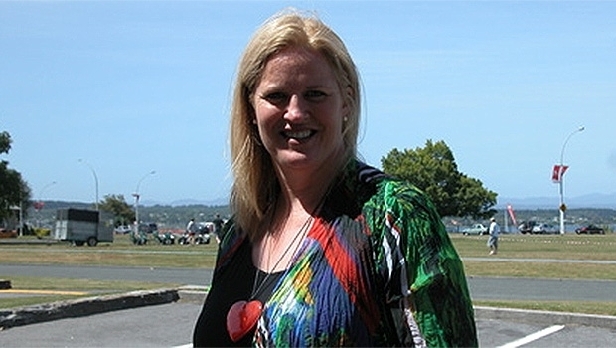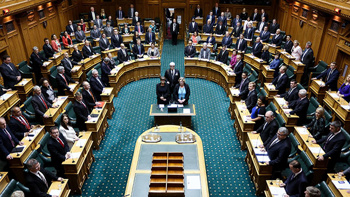
The Government has again said it wants to improve the outcomes of those on social welfare as modelling predicted shocking forecasts for people on the benefit.
According to modelling by Taylor Fry, the Government estimates that those on the main Jobseeker payments will stay on the benefit for an average of 13 years. Teenagers on welfare are forecast to spend their entire lives dependent on the system.
The figures, obtained by the NZ Herald, showed the estimated time that work-ready Jobseeker recipients would spend on income support, until they reach retirement age, had jumped by 23 per cent since 2019. This was amid a “worrying” slowdown of the benefits system that could strain government finances and trap thousands of people in poverty.
On the Mike Hosking Breakfast show this morning, Social Development and Employment Minister Louise Upston said she while she was aware the figures had been getting worse, the true extent of it was "shocking".
The minister said she'd been pushing the former Government to make changes that would avoid this outcome.
"I was raving fiercely in opposition about the increase in time that people would spend on welfare - and also that there was this enormous opportunity when businesses everywhere were crying out for staff," she told Hosking.
"The previous Government failed to get those on welfare into work."
She referred to the "massive problem" as one her Government had inherited and one that demanded progress. It was unacceptable that young people would face spending a lifetime on the welfare system, she said.
"It affects them, it affects their children and I'm just unwilling to watch that all happen."
Asked if she believed the modelling data was accurate, Upston outlined what her Government was already aware of: that quarterly stats proved people were staying on welfare for longer.
She said the Government needed to ensure Work and Income focused on supporting people into the workforce, that jobs were available - and that although the employment market was getting tougher, it's not impossible to get welfare recipients into jobs.
"[It's] a combination of working with community providers to support people into work [and] making sure there are consequences - if you can work, you should," she said.
"It's as simple as that. And over time we want to make sure the incentives for people to work are more adequately balanced."

The minister suggested poor leadership under the previous Government led to the worsening statistics: if the minister isn't concerned, the agency won't be.
Steps were being taken already to prioritise the effort of Work and Income, as well as front-line staff to support people into work, she said.
"That's what counts, and it makes an enormous difference for the rest of their lives - both in income but equally their mental health. Social connections and the benefits from work are clearly understood."
Hosking asked whether the Government would introduce a timeline to ensure those on the benefit didn't stay on it for longer than necessary - a suggestion Upston said was one way of tackling the issue.
Hosking also noted if a 17-year-old started receiving the benefit, modelling suggested they would be 30 by the time they stopped.
"They're a bit too comfortable on welfare," said Upston.
"We need to ensure that those who can work do. And we do have that expectation and it's driven the front line."
But getting those who can work into jobs is another matter altogether - as there are still question marks over the reality of New Zealand's job market.
Yesterday it was confirmed the unemployment figure sat at around 4 per cent, which was not as bad as most economists and experts had expected. It suggested the economy might be holding up better than expected - but business experts aren't too sure.

The Employers and Manufacturers Association (EMA) told the Mike Hosking Breakfast yesterday that the job numbers didn't quite seem to line up and this was seconded this morning by Catherine Beard, director of advocacy for Business NZ.
She said the numbers "feel a bit wonky".
"We would have expected more, as the EMA said, they've been telling us for a while now they've been getting inquiries from businesses about restructuring and redundancies."
Beard said Business NZ carries out a monthly and two-monthly survey with businesses, one for the manufacturing sector and one for the services sector.
She said that manufacturing "has been in the doldrums for about eight months now" and that employment was in contraction, while the services sector also hadn't been too positive in terms of hiring.
"Maybe there's a bit of a lag, or maybe it's immigration holding the number where it is," she said.
"You expect [unemployment] to continue to go up - it's been historically incredibly low - even 4 per cent is incredibly low when you think about the 10 years pre-Covid.” low just globally."
Take your Radio, Podcasts and Music with you









